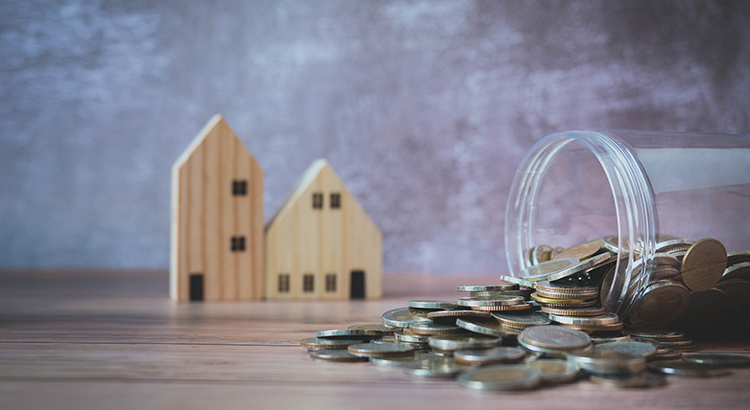How Global Uncertainty Is Impacting Mortgage Rates
How Global Uncertainty Is Impacting Mortgage Rates If you’re thinking about buying or selling a home, you’ll want to keep a pulse on what’s happening with mortgage rates. Rates have been climbing in recent months, especially since January of this year. And just a few weeks ago, the 30-year fixed mor
In The New Jersey Market: Why It’s Critical To Price Your House Right
Why It’s Critical To Price Your House Right Ryan Skove - EXP Realty When you make a move, you want to sell your house for the highest price possible. That might be why many homeowners are eager to list in today’s sellers’ market. After all, with record-low inventory and high buyer demand, many homes
Down Payment Assistance Programs Can Help You Achieve Homeownership
Down Payment Assistance Programs Can Help You Achieve Homeownership For many homebuyers, the thought of saving for a down payment can feel daunting, especially in today’s market. That’s why, when asked what they find most difficult in the homebuying process, some buyers say it’s one of the hardest s
Expert (Local) Advisor Will Give You the Best Advice in Today’s Market
An Expert Advisor Will Give You the Best Advice in Today’s Market Having an experienced guide coaching you through the process of buying or selling a home is important in a normal market – but today’s market is far from normal. As a result, an expert real estate advisor isn’t just good to have by yo
Millennials: Do You Need a Home with More Space?
Millennials: Do You Need a Home with More Space? If you’re a millennial, homebuying might be top of mind for you. Your generation is the largest group of homebuyers in the market today and has been since 2014, according to the National Association of Realtors (NAR). And while other millennials are l
The #1 Reason To Sell Your House Today
The #1 Reason To Sell Your House Today Almost every industry is currently struggling with supply chain disruptions. This also applies to the current U.S. housing market, where buyer demand far exceeds housing supply. Purchaser demand is very strong right now. The National Association of Realtors (NA
How Supply and Demand Can Impact Your Buying and Selling Goals
How Supply and Demand Can Impact Your Buying and Selling Goals In today’s housing market, there are far more buyers looking for homes than sellers listing their houses. Based on the concept of supply and demand, this means home prices will naturally rise. Why is that? When there are more people tryi
Real Estate Voted the Best Investment Eight Years in a Row
Real Estate Voted the Best Investment Eight Years in a Row In an annual Gallup poll, Americans chose real estate as the best long-term investment. And it’s not the first time it’s topped the list, either. Real estate has been on a winning streak for the past eight years, consistently gaining tractio
Why This Is Not a Housing Bubble
4 Simple Graphs Showing Why This Is Not a Housing Bubble A recent survey revealed that many consumers believe there’s a housing bubble beginning to form. That feeling is understandable, as year-over-year home price appreciation is still in the double digits. However, this market is very different th
Are You Ready To Fall in Love with Homeownership?
Are You Ready To Fall in Love with Homeownership? Financial benefits are always a key aspect of homeownership, but it’s also important to understand that the nonfinancial and personal benefits are why so many people genuinely fall in love with their homes. When you own your home, you likely feel a s
What Every Seller Needs To Know About Renovating This Year
What Every Seller Needs To Know About Renovating This Year If you’re planning to sell this year, you’re probably thinking about what you’ll need to do to get your house ready to appeal to the most buyers. It’s crucial to work with a trusted real estate professional who knows your local market to get
The Path To Homeownership Can Be Steeper for Some Americans
The Path To Homeownership Can Be Steeper for Some Americans As we celebrate Black History Month, we honor and recognize the past and present experiences of Black Americans. A significant part of this experience is investing in a home of their own. While equitable access to housing has come a long wa
Consumers Agree: It’s a Good Time To Sell
Consumers Agree: It’s a Good Time To Sell In today’s sellers’ market, many homeowners are weighing their options and trying to decide if they should sell their house. If you’re in that group, you may be balancing things like the ongoing health crisis, rising mortgage rates, and your own changing nee
Don’t Let Student Loans Delay Your Homeownership Dreams
Don’t Let Student Loans Delay Your Homeownership Dreams If you’re looking to buy a home, you may be wondering how your student loan debt could impact those plans. Do you have to wait until you’ve paid off your student loans before you can buy your first home? Or could you qualify for a home loan wit
Where are Mortgage Rates Heading?
The Top Indicator if You Want To Know Where Mortgage Rates Are Heading Mortgage rates have increased significantly since the beginning of the year. Each Thursday, Freddie Mac releases its Primary Mortgage Market Survey. According to the latest survey, the average 30-year fixed-rate mortgage has rise
Could a Move Bring You More Happiness?
Why a Move Could Bring You More Happiness This Year Over the past two years, we’ve lived through one of the most stressful periods in recent history. Because of the health crisis, many of us have spent more time at home and that’s led us to re-evaluate both what we need in a house and how much we ap
Owning Is More Affordable than Renting in the Majority of the Country
Owning Is More Affordable than Renting in the Majority of the Country If you were thinking about buying a home this year, but already pressed pause on your plans due to rising home prices and increasing mortgage rates, there’s something you should consider. According to the latest report from ATTOM
Why Right Now Is a Once-in-a-Lifetime Opportunity for Sellers
Why Right Now Is a Once-in-a-Lifetime Opportunity for Sellers If you’re thinking about selling your house in 2022, you truly have a once-in-a-lifetime opportunity at your fingertips. When selling anything, you always hope for strong demand for the item coupled with a limited supply. That maximizes y

Ryan Skove, ABR, SRS
Phone:+1(732) 365-0265




















